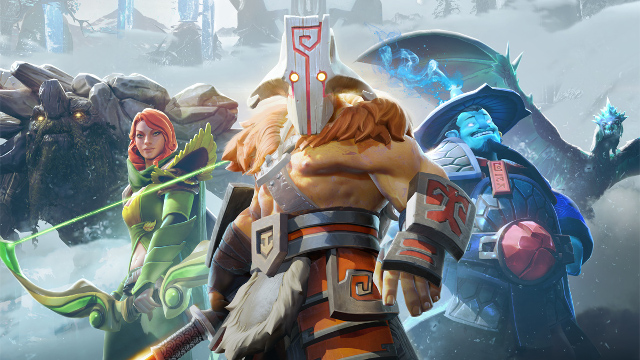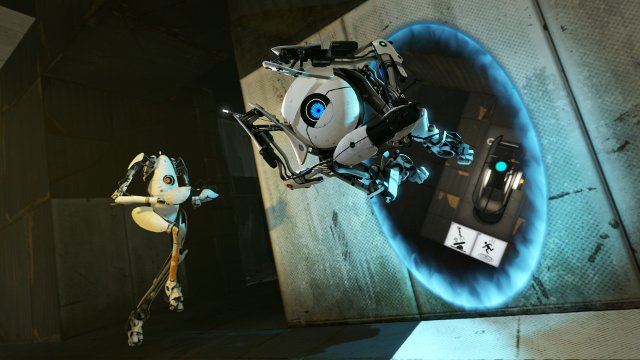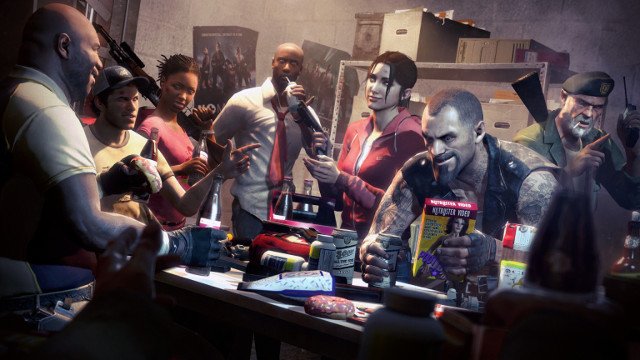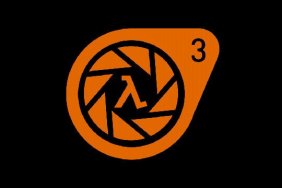Check under your bed. Are there any Valve games there? What about in the cracks between the cushions of your sofa — can you spot any there? A rogue Portal 3, perhaps, peaking out in between all the loose change and lint? No? Well, you’re not alone.
People have been looking for a new Valve game for years now. The developer’s last full game release was Dota 2, and aside from a virtual reality Portal experience in the form of The Lab and a couple of collaborations with their existing properties such as the Left 4 Dead: Survivors arcade game, they’ve opted to take a backseat and instead focus upon their Steam platform.
Who can really blame them? Valve makes roughly 30% from every game sold on Steam, and with SteamSpy estimating that 378,400,000 games made its way into Steam users’ libraries in 2016, that’s a whole lot of moolah. In 2014, market data compiled by SuperData estimated that Valve had raked in $730 million throughout the course of the year, and with Steam having only increased in popularity since then, it’s anyone’s guess as to how much they’re pulling in right now. While Valve isn’t a publicly traded company, meaning their net worth is private information, Forbes estimates that its founder Gabe Newell has a net worth of $4.1 billion, making him the 134th richest person in the world. For context, this puts him ahead of the likes of Donald Trump, Steven Spielberg and Oprah Winfrey.

We’re constantly receiving games from developers because they need to keep making them in order to keep the lights on. Even mega corporations such as EA are reliant upon the constant financial success of their releases in order to stay successful, with them not afforded the opportunity to rest on their laurels, even if the mega bucks they’ve garnered over the years lets them release a few duff games every now and again. Valve, on the other hand, have ensured that their financial situation does allow them to do so, though it doesn’t in any way mean that they’re simply sitting back and taking it easy.
Also: Valve Plans to Prevent Review Bombing on Steam Following Firewatch Controversy
Valve currently has around 360 employees, each hard at work at not only keeping Steam operational, but keeping the rest of their roster of games ticking along, too. Unlike many other publishers, who mostly rely upon sequels for their most popular franchises to keep the profits coming in, Valve has always intended its releases to withstand the test of time; Counter-Strike: Global Offensive is still one of the most played games on Steam, with it being a mainstay of its top three, while Dota 2 — currently the second most played Steam game behind PlayerUnknown’s Battlegrounds — is a global force on the eSports stage. Indeed, Dota 2 is so popular that back in July the Dota 2 event The International featured the largest prize pool in eSports history, coming in at a whopping $24.8 million.
Aside from Steam requiring ample time and effort in order to ensure that it continues to run smoothly, these games also require frequent improvements and a whole bunch of work to keep them as popular (and profitable) as they are. Without Valve continuing to tinker behind the scenes, Dota 2 wouldn’t be the eSports giant that it is, even if gamers believe that such tinkering has also prevented them from receiving Half-Life 3.

The majority of Valve’s most popular series from a consumer standpoint — Half-Life, Left 4 Dead, Portal — were each successful on consoles, too, but therein presents another problem; Valve doesn’t want to make console games anymore. In an interview roundtable at Valve’s offices earlier this year, Gabe Newell addressed the limitations that consoles place upon Valve’s ideas: “We get really frustrated working in walled gardens,” the Valve founder said (via Eurogamer): “So you try to talk to someone who’s doing product planning on a console about free-to-play games and they say ‘Oh, we’re not sure free-to-play is a good idea’ and you’re like ‘the ship has left.'”
Though many would have no qualms with Valve moving ahead with a Left 4 Dead 3, Half-Life 3 or Portal 3 exclusively on PC, there are still many fans of these franchises who want to play on console, and such a decision could potentially prove too divisive for Valve to bother with the controversy. There’s also the point that sequels to each of the games, save for maybe L4D3 given Left 4 Dead 2’s relatively sizeable community, wouldn’t have the legs to keep running alongside Dota 2 and Counter-Strike. This would mean that a brand new IP would arguably be the most preferable course of action, and if that is the most logical option, then why bother right now when their older games are still very successful for them?
Valve does have a new game coming out soon, though it’s not exactly in line with the expectations many have of them. Artifact is a Dota 2 spin-off card game, and the reaction to its announcement in August was a mixture of laughs and boos:
Long-time Valve fans don’t want Artifact; they want the aforementioned sequels to games that shaped both the future of the company and the gaming industry on the whole, or brand new IPs that aren’t MOBAs. However, given Valve’s continued success with Steam, Dota 2 and CS: GO, it’s difficult to blame them for being quiet on the game development front, and for being fussy over which projects they choose to pursue. While the PC doesn’t exactly need another collectable card game, it’s difficult to imagine that development on Artifact has prevented them from working on anything else — the unfortunate reality is that even without Artifact, we still wouldn’t receive Half-Life 3 regardless.







